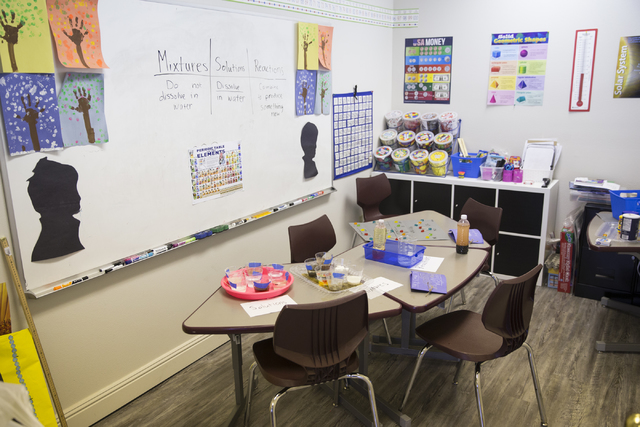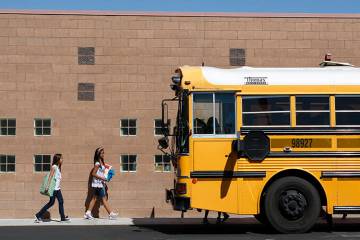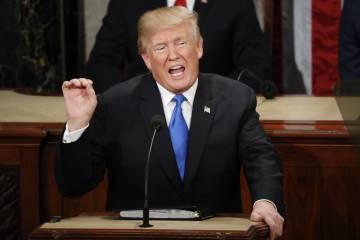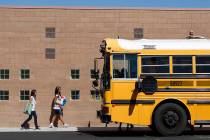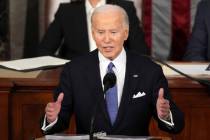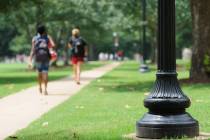Ruben Murillo, president of the Nevada State Education Association, falsely portrays private schools as bastions of affluence that fail to produce improved student achievement.
It is never a surprise when a teacher-union leader advocates for higher public education spending while seeking to slam the door on programs, such as Education Savings Accounts, enabling parents to find alternatives in the private sector that work better for their children (“More funding preferable to risky voucher plan,” Jan. 7 commentary). However, Ruben Murillo, president of the Nevada State Education Association, falsely portrays private schools as bastions of affluence that fail to produce improved student achievement.
As for demographics, the U.S. Census Bureau found in an October 2015 study that 87 percent of parents with annual incomes of $75,000 or more (the highest income category in the study) had their children enrolled in public schools only, while just 11 percent had their kids exclusively in private schools. Another study found that private schools were four times more likely than public schools to have their students involved in community service. Additionally, schools freely chosen by families are racially integrated to a greater degree than the public schools they left.
As for achievement, 12 of 15 randomized studies found significant gains in achievement for students who used vouchers to attend private schools. Only two studies noted negative outcomes. Many other data show higher levels of proficiency on the National Assessment of Educational Progress and graduation rates for students in private schools.
Statistics are not the whole story, but they give an inkling why many parents would like to be able to enjoy a wide range of options for their children.



